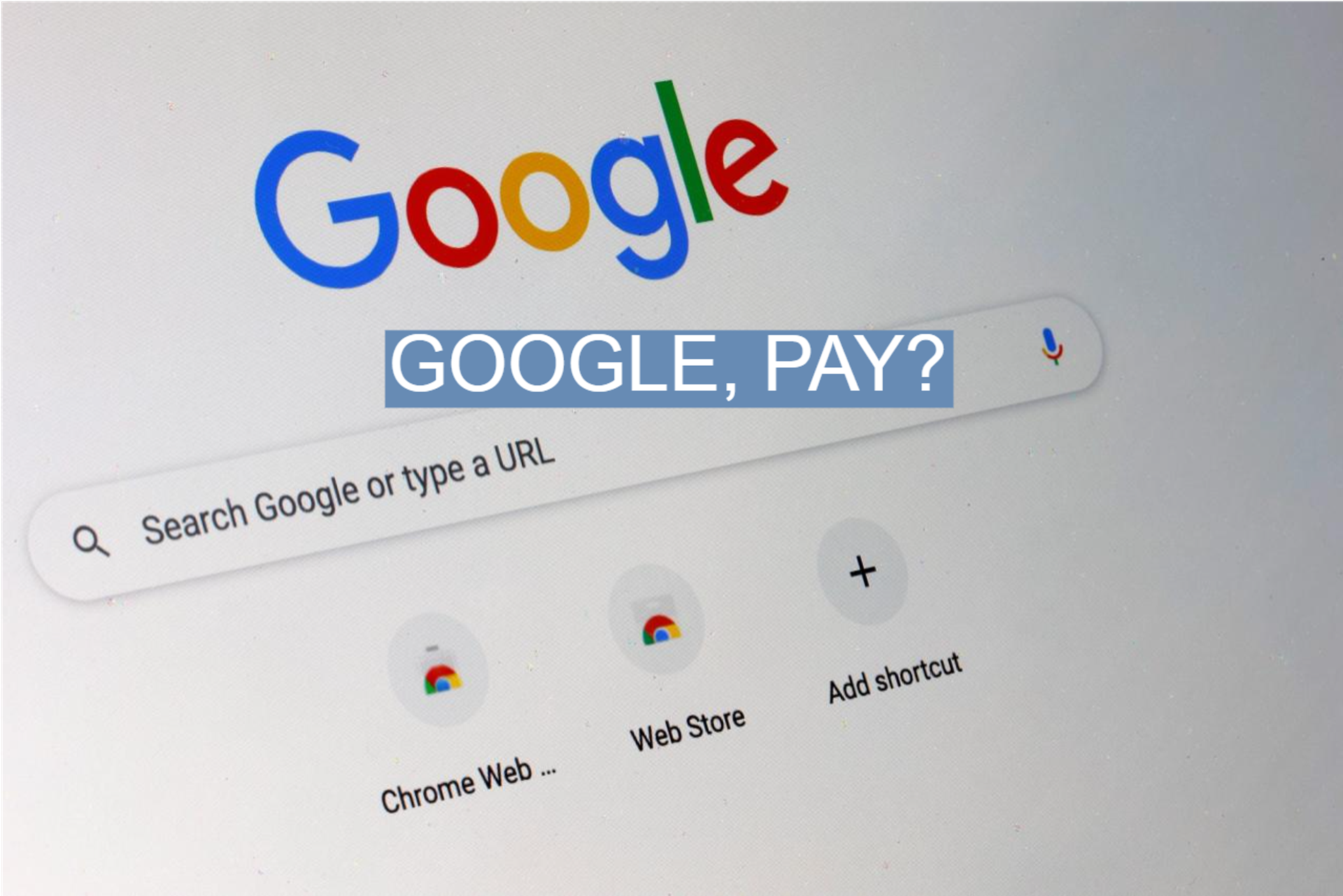The News
The latest entry in the escalating global struggle between news publishers and giant digital platforms is a paper that makes the case that Google owes U.S. publishers more than $10 billion a year for the way snippets and headlines of news articles appear in its search.
The study, released by Columbia University’s Institute for Policy Dialogue, argues that Google should distribute 17.5% of its search revenue to publishers annually. Meta owes 6.6% of its ad revenue, by the same calculations, or just under $2 billion a year.
Google rejects both the study’s methods and its findings. Spokeswoman Jenn Crider said that “less than 2% of all Searches are news related.” Google, she said, drives “tremendous value to news publishers by sending more than 24 billion visits each month to their sites – at no cost to them – which they can monetize.”
In this article:
Ben’s view
The drive to force digital platforms to pay news publishers came after a decade in which publishers chased online ad revenue generated by traffic from social and search platforms – only to find that clicks simply couldn’t underwrite the cost of quality journalism. Governments in which the news industry wields considerable political power — beginning with Rupert Murdoch’s native Australia — began considering whether they could simply force platforms to pay publishers.
The new study will be a cudgel for regulators looking to squeeze Meta and (especially) Google. One author, Anya Schiffrin, is a longtime advocate of this effort, and the study puts meat on the bones of her argument that “financing quality journalism requires a collective effort, and it is crucial that the Big Tech platforms do their part.”
The paper’s core calculation is based on a study of Swiss people, which found that about half of searches are for “information,” rather than, say, a search for a specific website or to buy something.Seventy percent of people in that study, shown two versions of results, preferred “a version of Google with journalistic content” to over one without it. The Columbia paper interprets those findings to mean that 35 percent of all searches” are looking for content from news publishers. It argues that as 50% is a normal fee for syndicating content (though the snippets shown in search aren’t full syndication), 17.5% of the revenue associated with Google searches should go to publishers.
The calculations seem shaped to maximize the value of publishers’ content for Google — but another author, the University of Houston’s Haaris Mateen, argued in an interview that news has outsized value to platforms, similar to the value live sports have to cable bundles. It’s an extremely aggressive, as well as pretty rough, and Swiss, estimate — but also a transparently-presented entry in a high-stakes argument.
Countries from Brazil to the United States are considering similar legislation, and the Columbia paper discusses a proposed U.S. law.
And after agreeing to negotiated payments in Australia, Google and Meta are now in a bitter standoff in Canada, where Meta has pulled links to news sites from Facebook.
But between the two, Google will find it harder to evade the politics of news payments. Search obviously depends on information, and while the company is currently threatening to pull news from results in Canada, in the long term Google doesn’t have Meta’s luxury of playing chicken with the news industry. Its value isn’t in social connections or user-generated content, but in presenting accurate results to queries, including for news. The company is also in the opening rounds of complex negotiations over whether and how to compensate news publishers for AI training data sets — an issue that overlaps with the question of whether they should pay for news in general.
The stakes here are high, because the high margins — and valuations — of the dominant digital platforms rest on their low content costs. The debates over math will continue. The ultimate outcomes, however, may vary between countries where publishers hold the political upper hand against foreign tech giants, and the U.S., in which tech remains a centrally powerful domestic political force.
The View From Australia
Rod Sims, the former chairman of the Australian Competition and Consumer Commission, praised the report as “timely and very helpful” in a Whatsapp message Monday morning.
“It is clear on its assumptions and methodology, and so can promote a well informed debate on what Google and Meta owe publishers for their news media content. Their approach is logical,” he said. “The debate is no longer over whether the platforms should pay, but about how much. This paper is an extremely thoughtful contribution to this debate.”
Notable
- “We’re not dying of old age, we’re dying of homicide,” Danielle Coffey, who leads the news industry lobby, told the Seattle Times.
- The Australian regulation is “a problematic law that should not be replicated,” Google’s Cris Turner wrote this summer.
- The Swiss study at the heart of the debate describes itself as “a behavioral economics approach to ancillary copyright.”
